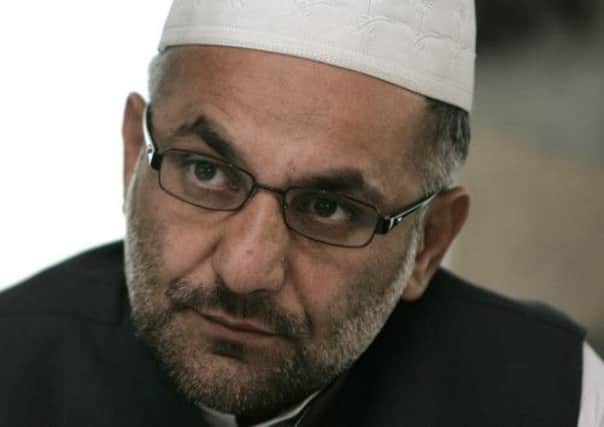Afghanistan: Microphone bomb kills top Karzai aide


His assassination was being seen as part of an intensified campaign to intimidate Afghanistan’s administration as it prepares for elections and the withdrawal of foreign troops after 12 years of war.
Governor Arsallah Jamal of eastern Logar province died instantly in the blast at the main mosque in the provincial capital of Pul-i-Alam to mark the Feast of Sacrifice. The attack also wounded 15 people, five of them critically, said his spokesman, Din Mohammad Darwesh.
Advertisement
Hide AdAdvertisement
Hide AdMr Jamal was a confidant and adviser to president Hamid Karzai, who condemned the bombing as an attack “against Islam”.
“Terrorists and the Taleban working in the name of Islam carry out attacks that result in the killing of innocent Muslims. Surely it is not the act of Muslims, but those hired to kill Muslims,” Mr Karzai said.
He has often blamed foreign interests, mostly in Pakistan, of being behind many of the attacks against members of his government in recent years.
No group has claimed responsibility, but the attack yesterday bore the hallmarks of the Taleban, which has been fighting his administration and the foreign military presence since the US invasion in late 2001.
Logar, which is just south of Kabul, has recently seen an influx of Taleban fighters and increased attacks against government forces.
Mr Jamal, 47, was Karzai’s campaign manager during the 2009 presidential elections. He was also governor of Khost until he was appointed to Logar in April.
A high-profile target, Mr Jamal had survived a number of assassination attempts, including suicide bombings against his office in Khost in May and July 2009, and a suicide car bomb attack that targeted his convoy in August 2007.
Although details of the bomb have not been released by the police, officials said it was planted in a microphone-stand in front of Mr Jamal.
Advertisement
Hide AdAdvertisement
Hide AdSophisticated explosives have been used to kill officials, including bombs in turbans and even inside people’s bodies.
Former Afghan president Burhanuddin Rabbani, the leader of a government-appointed peace council, was killed in September 2011 by an insurgent posing as a peace envoy. The militant detonated a bomb in his turban as he kissed Mr Rabbani in a traditional greeting.
The killing of Mr Jamal was the highest profile attack against a Karzai confidant since December, when a suicide bomber posing as a peace envoy from the Taleban severely wounded Afghanistan’s intelligence chief, Asadullah Khalid.
The Taleban, believed to be based in Pakistan’s lawless tribal regions, have intensified attacks on government officials and members of Karzai’s administration.
In June, a Taleban suicide bomber struck outside Afghanistan’s supreme court, killing 17 people. In April, insurgents attacked a courthouse and government offices in Farah province, killing 46 people, including two judges, six prosecutors, administration officers and other workers.
Link to China
A group supporting Afghanistan’s administrative development said it suspected Governor Arsallah Jamal’s work to get the Aynak copper mine in Logar province up and running was the reason he was killed.
“Jamal had done considerable work for the excavation of copper at the Aynak mine,” the Independent Directorate of Local Governance said. “These activities were not acceptable to the enemies of the country and that is why they martyred him on the first day of Eid al-Adha,” it said.
Mr Jamal spent part of his life in Canada, where his wife and two children still live.
Advertisement
Hide AdAdvertisement
Hide AdA Chinese consortium is running the Aynak mine under a $3 billion (£1.8bn) deal agreed in 2007.
It is Afghanistan’s largest foreign investment project but Taleban attacks on the site have prevented work from getting going.
The Chinese investors in August demanded a review of the deal, putting the project at risk. Production was originally scheduled to start this year, but now is seen as unlikely before 2019.